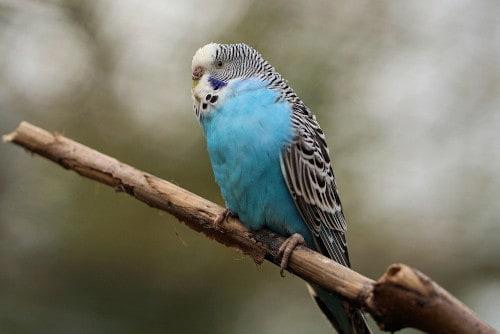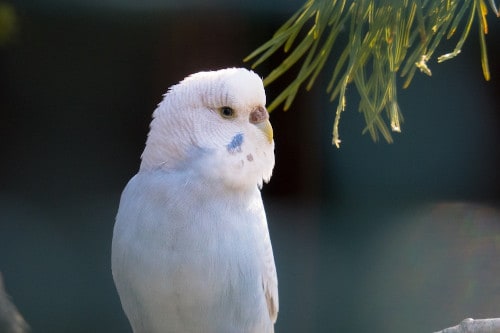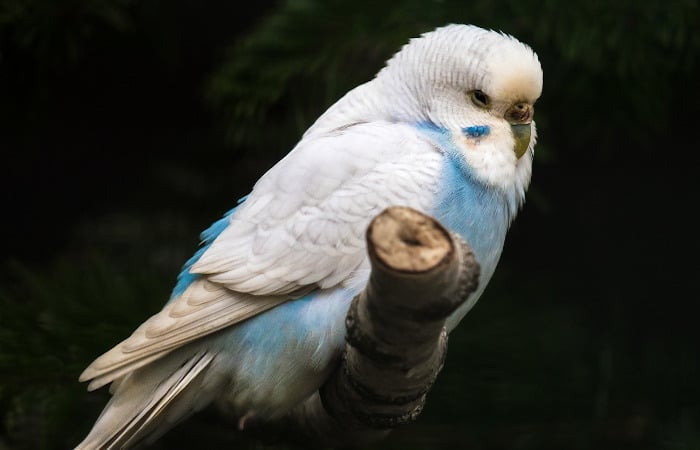Do parakeets grieve? This is a question that has been asked by many people, and there is no definitive answer.
Some people believe that parakeets do not experience grief, while others believe that they do.
There are a few pieces of evidence that suggest that parakeets do experience grief.
For example, when a bird’s mate dies, the bird may stop singing and become withdrawn.
If you have lost a parakeet, you may have noticed some of these behaviors yourself.
Why do parakeets grieve?

Parakeets can experience grief when they lose something or someone important to them.
Sometimes these little birds can fall into depression, even grief when they lose their mates or their owners.
Loss of their mates
One reason is that they are social creatures who form strong bonds with their mates.
When their mates fly away or are given away, they can feel isolated and alone.
Their mates die
Secondly, the death of a mate can be devastating for a parakeet.
Not only do they have to contend with the sudden loss of companionship, but they also have to adjust to living alone.
Their babies die
Additionally, the death of a baby can also trigger grief in parakeets.
While it’s natural for them to want to care for and protect their young, the death of a baby can leave them feeling confused and helpless.
Loss of their owner
Finally, parakeets often form close bonds with their owners and can become depressed when they are neglected or lose contact with their owners.
Not only are they suddenly without the person they love, but they also have to adapt to a new environment and caretaker.
While it can be hard to watch a parakeet go through grief, it is important to give them the time and space they need to heal.
You may also like: Can Parakeets Die From Cold?
What are the signs of a grieving parakeet?
A parakeet that is grieving may exhibit several different behaviors.
Loss of appetite
One of the most common signs is a loss of appetite. The bird may stop eating entirely or may only pick at its food.
Feather plucking
Another common sign is feather plucking. The parakeet may pull out its own feathers or may chew on them until they are damaged.
Excessive head bobbing
Additionally, the bird may engage in excessive head bobbing. This behavior can be a sign of distress or can indicate that the bird is having difficulty balancing.
Insomnia
Another sign of grieving is that your parakeet may become more lethargic during the daytime but have trouble sleeping at night.
Obsessive behaviors
It may also start to engage in obsessive behaviors, such as picking its feathers or pacing back and forth. These behaviors are normal and should eventually subside as the bird adjusts to its new life without a mate.
If a parakeet shows any of these behaviors, it is important to provide extra care and attention.
Grieving birds often benefit from being given additional perches and toys, as well as from being spoken to in a soft voice.
How long do parakeets grieve?
When a pet parakeet loses a companion, it may go through a period of mourning.
During this time, they may become withdrawn and stop eating or playing.
While the grieving process is different for every bird, most parakeets will start to recover after about two to four weeks.
If your bird seems unusually depressed, consult with a veterinarian to rule out any medical causes.
With a little patience and care, your parakeet will soon be back to its normal self.
You may also like: Why Do Parrots Throw Their Food?
Can parakeets die of loneliness?
Parakeets are social creatures that thrive on companionship.
In the wild, they live in flocks of up to 100 birds, and they form close bonds with their flockmates.
When kept as pets, parakeets should always be kept in pairs so that they can have the companionship they crave.
Without a buddy, parakeets can become depressed and withdrawn, and they may eventually die of loneliness.
So next time you’re considering getting a pet parakeet, remember that two are always better than one.
How to help a grieving parakeet?

Losing a pet is always a difficult experience.
If you have a grieving parakeet, there are a few things you can do to help them through the process.
Plenty of attention
First, give them plenty of attention. Let them perch on your finger and spend time talking to them.
They need to know that they are still loved and cared for.
Play soothing music
Second, play soothing music for them. This can help to calm their nerves and make them feel more at ease.
Give interactive toys
Third, give them interactive toys to keep their minds occupied. These can include toys that dispense food or water, as well as ones that move around on their own.
Offer favorite foods
Fourth, continue to offer your parakeet its favorite foods. Though it may not have much of an appetite at first, sticking to a familiar diet can provide a sense of comfort.
Give enough time
Fifth, give your parakeet plenty of time to grieve. Parakeets are social creatures, so the loss of a mate can be devastating.
Allow your bird to spend as much time as it needs alone, and don’t force it to interact with new partners too soon.
Consult a vet
Finally, consult a vet if you’re concerned about your parakeet’s health.
The grieving process can take a toll on an animal’s physical well-being, so it’s important to make sure that your bird is getting the care it needs.
By following these simple guidelines, you can help your parakeet through this difficult time.
You may also like: Do Parrots Cry?
Should I introduce a new partner to the grieving parakeet right away?
When a beloved pet dies, it can be difficult to cope with the loss.
For many people, their pets are like members of the family, and their death can leave a void in their lives.
For those who have feathered friends, the grieving process can be especially complicated.
While we might want to immediately introduce a new parakeet into the home to help fill the void, it’s important to take things slow.
Grief is a complex emotion, and our feathered friends are sensitive creatures who can pick up on our moods.
It’s best to give ourselves and our birds time to grieve before introducing a new member to the flock.
When the time is right, we can slowly introduce the new bird, making sure to monitor both birds for signs of stress or discomfort.
By taking things slow, we can help our birds adjust to change in a way that is healthy for them and respectful of their emotions.
Conclusion
Do parakeets grieve? The answer is yes, they certainly do.
If you have a grieving parakeet, there are a few things you can do to help them through the process, including giving them plenty of attention, playing soothing music, and offering their favorite foods.
When the time is right, you can slowly introduce a new bird into the home.
By taking things slow and being mindful of your bird’s emotions, you can help your feathered friend through this difficult time.
